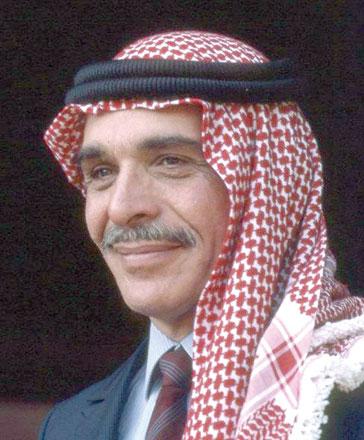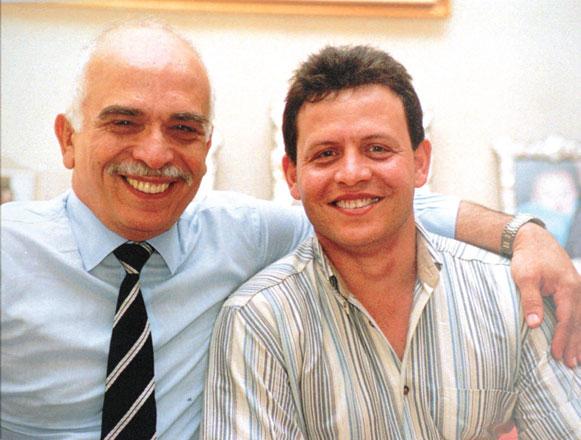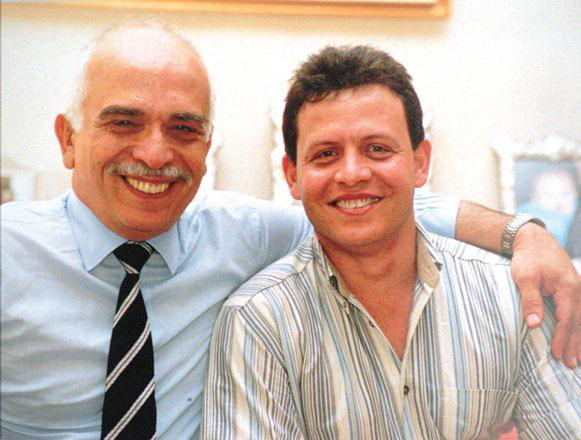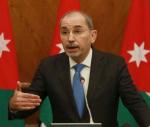You are here
Jordan remembers King Hussein
By JT - Feb 06,2020 - Last updated at Feb 06,2020

AMMAN — Jordanians on Friday mark the 21st anniversary of the passing of His Majesty King Hussein, who died at the age of 63 on February 7, 1999, following a battle with cancer.
Also on Friday, Jordanians mark the anniversary of His Majesty King Abdullah’s assumption of constitutional powers, as he was proclaimed King on the same day.
The King has received cables marking the 21st anniversary of his assumption of constitutional powers, which falls on Friday, February 7.
The cables’ senders—senior officials, army officers, heads of security agencies, and representatives of civil society organisations — paid tribute to King Hussein and his achievements in building Jordan, according to a Royal Court statement.
They also praised King Abdullah’s leadership over the past two decades, citing the focus on youth empowerment and technological and economic advancement.
They expressed optimism in Jordan’s future as it prepares to celebrate its centennial as a state, lauding His Majesty’s efforts in defending Arab and Islamic causes, and voicing support for the King’s role in safeguarding Islamic and Christian holy sites in Jerusalem, in line with the Hashemite Custodianship, according to the statement.
King Hussein was born on November 14, 1935, as the eldest son of King Talal and Queen Zein Al Sharaf.
He studied at the Islamic Scientific College and then enrolled at Victoria College in Alexandria. In 1951, he entered Harrow College in England before receiving his military education at the Royal Military Academy Sandhurst in England, from which he graduated in 1953.
Hussein was proclaimed King of Jordan on August 11, 1952, and a Regency Council was appointed until his formal Accession to the Throne on May 2, 1953, when he assumed his constitutional powers after reaching the age of 18, according to the Islamic lunar calendar.
Throughout his reign, King Hussein worked hard to improve his country and raise citizens’ living standards. He also focused on building an economic and industrial infrastructure that advanced the quality of life of the Jordanian people.
During his reign, primary education became mandatory and schools were established across the Kingdom’s cities, villages and rural areas, allowing Jordan to become one of the leading Arab countries in terms of literacy.
King Hussein also focused on improving higher education, with dozens of public and private universities and colleges built under his rule.
He also sought throughout his reign to promote peace in the Middle East.
After the 1967 Arab-Israeli war, he was instrumental in drafting UN Security Council Resolution 242, which calls on Israel to withdraw from all Arab lands occupied in the 1967 war, in exchange for peace. The resolution has served as the benchmark for all subsequent peace negotiations.
In 1991, King Hussein played a pivotal role in convening the Madrid peace conference, providing an “umbrella” for Palestinians to negotiate their future as part of a joint Jordanian-Palestinian delegation.
The 1994 peace treaty between Jordan and Israel was a major step towards achieving a just, comprehensive and lasting peace in the Middle East.
The late King’s commitment to democracy, civil liberties and human rights has also helped pave the way for Jordan to become a model state in the region.
At the time of his death on February 7, 1999, King Hussein was the longest serving executive head of state in the world.
Related Articles
AMMAN — Jordanians on Tuesday marked the 19th anniversary of the passing of His Majesty King Hussein, who died at the age of 63 on February
AMMAN — Jordanians on Sunday mark the 22nd anniversary of the passing of His Majesty King Hussein, who died at the age of 63 on February 7,
AMMAN — Jordanians on Wednesday marked the 25th anniversary of the passing of His Majesty King Hussein, who died at the age of 63 on Februar


















